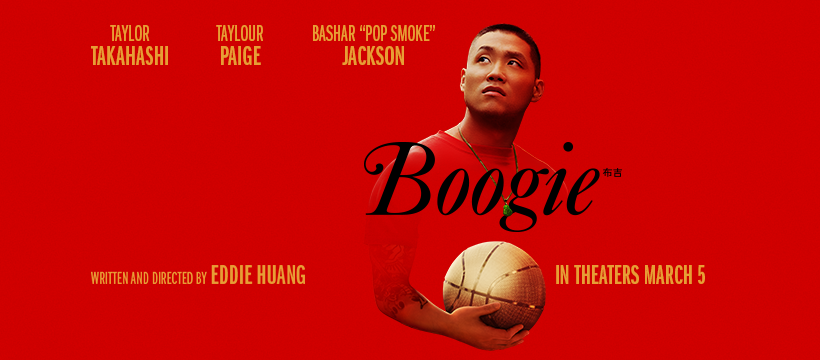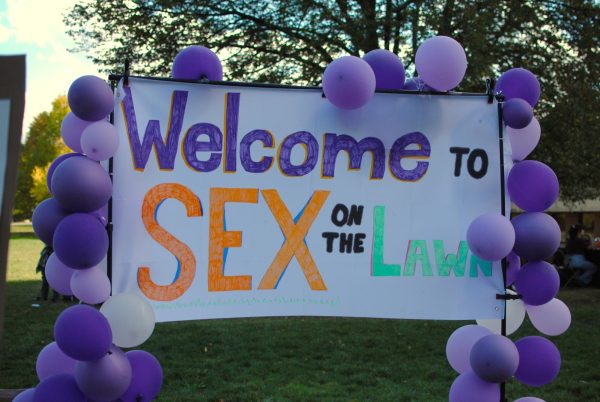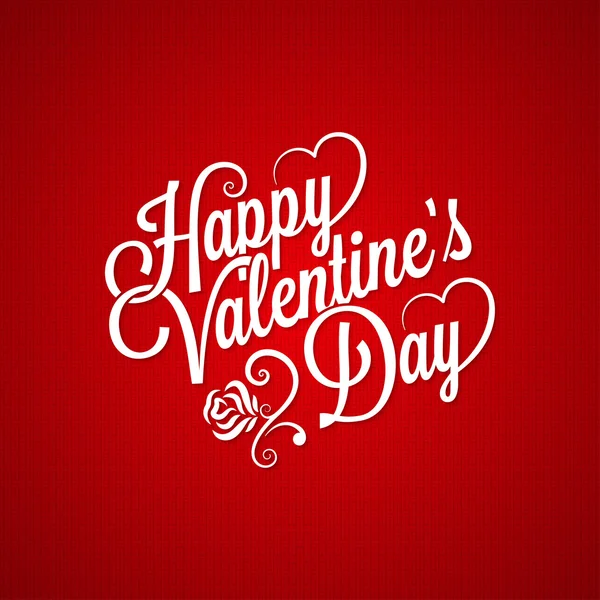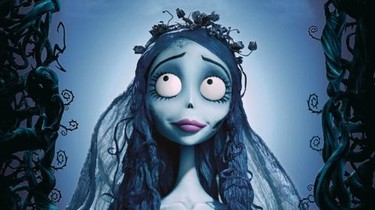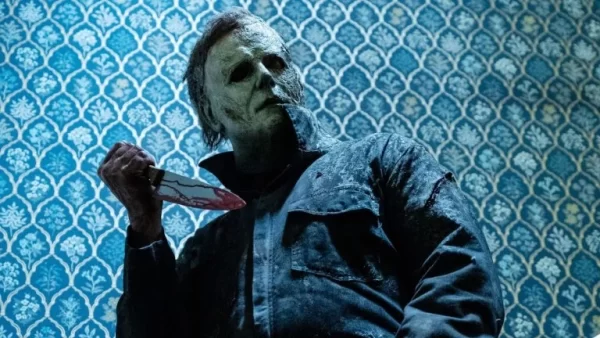Terrible acting ruins the important message of Eddie Huang’s “Boogie”
If you liked “Fresh Off the Boat,” Eddie Huang’s theatrical debut will fall short of expectations.
As someone that was raised in an Asian household and had previously used basketball to acclimate to American culture during recess, “Boogie” almost seemed like my own biographical movie. “Boogie” does have a relatable and meaningful message that I’ve witnessed firsthand, but it’s plagued with awful acting and diluted dialogue.
Eddie Huang is a real Renaissance man as he is a restaurateur, attorney, author and producer for the ABC sitcom “Fresh Off the Boat.” As this movie is his theatrical debut as a writer and director, a lot of pressure has been put on his shoulders.
He wanted to make a personal movie while simultaneously being enjoyed by everyone, whether or not they are Asian American.
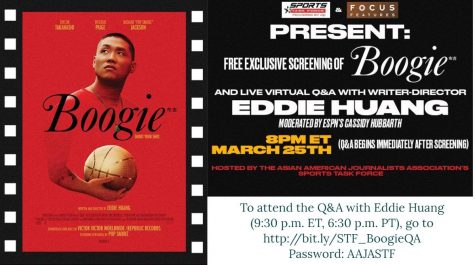
“On my personal journey, basketball is how I plugged into America,” Huang said in a Q&A sponsored by the Sports Task Force. “It was a way to see everyone’s personality and identity.”
“Boogie” follows titular Chinese American high school character Boogie, played by Taylor Takahashi, as he aspires to be an NBA player while facing pressure from his friends and family to lead a certain life, whether it be to earn a sports scholarship to a top 10 college or focus on his classwork and not basketball. Although everyone speaks highly of his basketball skills, Boogie’s short temper is what drags him down.
“No one believes in an Asian basketball player,” Boogie’s dad said. “We can cook, clean and count real good, but anything else, we’re picked last.”
The most pressing issue that Huang tackles is the breaking out of stereotypes in America.
Huang has previously stated that Asian American males are often emasculated and picked last when it comes to sports unless it is martial arts. Often, these stereotypes will slow down the people that want to breakthrough. I respected Boogie’s character as he ignores the “wonton soup” or “eggroll” insults and instead focuses on improving his basketball skill.
Although underdog stories have been retold countless amounts of times, it was refreshing to see a movie that tackles the emasculation of Asian American males in sports. It is something seldom seen, especially a film that dives deeper than just breaking stereotypes.
You might forget that Boogie is a high school student because he is played by a buff near-30-year-old man with two tattoo half sleeves. In his AP English class, his English teacher, Mr. Richmond, discusses “The Catcher in the Rye.” Dulled by lectures, Boogie complains to Mr. Richmond about how he can never relate to any of the characters in books. I can ironically relate to his inability to relate to a lot of the characters in books and other media. Throughout high school, I often found myself being forced to model myself after these fictional characters as if I was supposed to turn their fictitious life into a reality. This explores the issues of others attempting to live your own life for you and projecting their own values onto you. Boogie’s family and colleagues don’t have the same background as Boogie, but everyone wants to dictate what he should do with his life.
“Whether you know it or not, right here, right now, you are a coming-of-age story.”
-Mr. Richmond
I wish my English teacher told me that. It’s great to look at other stories and find ones that match you for inspiration, but ultimately people should focus on their own story because that’s the only thing that matters. Boogie’s friends and family want to live his life for him, but in the end, it belongs to him and he should do what he thinks is best. Ultimately, this is what he did.
Along with thousands of other high school students, I read “Oliver Twist” in my high school English class. It was hard to relate to the orphaned boy living in a bad area in London while I was living in urban southern California with my two parents. For some reason, I felt obligated by my English teacher to put myself into Oliver’s shoes when I couldn’t relate to him at all. The truth is relating to someone, whether they be fictitious or not, isn’t something that can be forced.
Several times throughout the movie, different coming-of-age stories are referenced, including “Free Willy” and the aforementioned “The Catcher in the Rye.” Parallel to “Free Willy,” Boogie tries to find his own freedom by trying to break free of his friends and family’s demanding and demeaning nature. Akin to Holden Caulfield, Boogie deals with angst while trying to feel less alienated in a new high school as an Asian basketball player. “Boogie” is similar to those stories in those certain regards, but the main character didn’t force himself to be the real-life Caulfield, it just turned out to be that way kind of like how I understand Boogie’s struggle because of my past experiences.
Everyone’s life and experiences are different from each other’s, but what is similar to all is that there is always constant growth and development that is personal to you. Sometimes people look at other people or coming-of-age stories to dictate their lives. Looking at other stories only slows you down, whether it be to model yourself after a hero from a story or to think that you can’t make it in the NBA because of your race. If you can relate to someone else’s story, that’s great, but don’t let it slow you down or make you fall in love with the idea as opposed to the end goal. As someone that is constantly compared to others for better or worse by my friends and family, I am glad this feature-length movie portrays my feelings exactly. I would much rather focus on my own coming-of-age story as opposed to reading “Oliver Twist” like it’s an instruction guide to live my life.
Family is indeed everything, but sometimes they can be too much to tolerate. The heaviest burdens on each of Boogie’s shoulders are his parents.
“My mom is responsible, but she doesn’t believe in me,” Boogie said. “My dad is irresponsible, but he believes in me.”
As an Asian American that has parents that want to live vicariously through me, I can relate to Boogie’s frustration towards the parental pressure and disconnect. It always felt strange to me how my own parents want me to succeed so much, yet they don’t put in the time to ask me how I really am.
Everyone in his life, even both parents, agrees that Boogie is a phenomenal basketball player, but he isn’t quite good enough for any scholarship mainly because of his atrocious attitude and putrid personality. In one scene, Boogie’s coach tells him to sit out of a game, but instead of sitting on the bench, he storms out of the building as if telling him to sit out was a form of disrespect. A certain character sticks out his hand for a handshake in another scene, but Boogie slaps it away instead of taking it on the chin. This is where we get introduced to basketball recruiter Melvin. He tells Boogie and his parents that he is unable to land Boogie with any sort of scholarship, but he can instead sign a contract to travel to Asia and play in the CBA (Chinese Basketball Association) all while guaranteeing $750,000.
Boogie’s mom falls in love with this idea as it would financially support the family tremendously, but Boogie’s father loathes a contract saying he will never play in the NBA. His father goes so far as to physically assault Melvin for suggesting this idea. Not to mention, they never ask Boogie what he wants to do with his own life.
I couldn’t believe that his father was so frustrated by the obstruction of his vicarious dream to the point where he slaps someone, but at the same time, it’s realistic. Trust me as someone who is intimately familiar with Asian culture and has felt the constant pressure to succeed from his parents, this could happen.
“My parents were always fighting and discipline was always violent,” Huang said. “No one ever intervened and I didn’t know what to do.”
Feeling the pressure coming in from all sides, Boogie seeks the guidance of a fortune teller. Should he try to get drafted into NBA? Should he sign the contract to join the CBA? Should he play in the final basketball game? The fortune teller tells him that when he’s being brought forth with so many options and he can’t please everyone, it’s best to do what makes him happy.
“Boogie” tackles a lot of societal issues but is held back by production problems. To be blunt, the acting is awkward. Takahashi never aspired to be an actor. He was just a yakitori chef who played basketball for fun. He just so happened to meet Huang on the court. Shortly after meeting, Huang hired Takahashi as his assistant. Huang wanted an Asian American person with basketball prowess and therefore Takahashi became Boogie.
Several lines of dialogue that came out of Takahashi’s mouth felt as if he was a first-year drama student in high school. Maybe he misinterpreted the “playing a high schooler” part of the movie. I know Huang wanted to showcase emotion because “Boogie” tackles serious topic but I never felt it. Hilarity ensued as a dramatic scene would take place, but Takahashi would blurt out a flat line of dialogue.
Even beyond Takahashi, it felt as if a majority of the cast were reading off a teleprompter throughout the one-and-a-half-hour runtime.
Before watching “Boogie,” I was on a Harmony Korine and Larry Clark binge. In their movies, “Kids,” “Gummo,” and “Ken Park,” the duo established their filming location first and then walk around the streets offering auditions to passersby. The actors either started the beginning of their career or only appeared in those movies, but their portrayals seemed compelling and accurate to what they were supposed to be. For example, the kids in “Kids” are absolutely terrible human beings because Korine and Clark were looking for real-life embodiments of their script. Their acting was great because the actual people shared qualities with their characters. Rosario Dawson was approached on the street by Clark and Korine to audition for “Kids” which she nailed and would mark the start of her decorated acting career.
Takahashi is just a terrible actor. Being a good basketball player does not warrant a role in a movie. Watching the acting in the Korine and Clark films before “Boogie” was like night and day. Non-actors can act well, but I don’t think Takahashi was meant for the role. He is a talented basketball player, but this is a feature-length movie and not a basketball highlights compilation.
Boogie’s dichotomy between himself and his love interest, Eleanor, is beyond bizarre. In one of their first interactions, the two are at the gym and creepily stare at each other as if it’s the sixth installment in the “Twilight” series. When he finally works up the nerve to approach her, his way of flirting is telling her that she has “a nice vagina.” As if that would win her over. Eleanor responds that she doesn’t date “ball guys” and leaves. For some reason, Boogie doesn’t take the direct rejection and constantly tries to flirt with her.
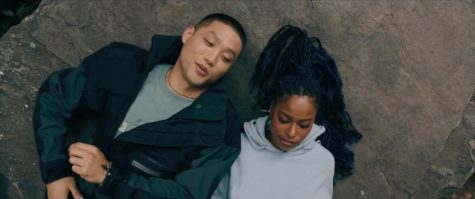
In the Q&A session, Huang revealed that he included this line of dialogue because it was something that he witnessed one of his friends say to a girl in high school. He also cringed at what the audience heard, but portrayed it in his film because “we all have something to learn about toxic masculinity.” What doesn’t make sense is that Boogie and Eleanor eventually end up dating out of the blue. It’s as if I blinked and I missed it. I just don’t understand how a girl who doesn’t date basketball players falls in love with a basketball player who talks to girls with vulgarity while bearing the death stare of Hannibal Lecter. At the same time, it wasn’t confusion on my end, it was just the discombobulated writing.
Huang wanted to make something that was a sports movie on the surface but tackles other film genres. He should have stayed away from romance.
As an Asian American, I did appreciate the messages that the film portrays and I think that this is something American audiences need because of the current state of the country, but I was far too distracted by the poor acting and questionable dialogue to fully enjoy it. I did understand Huang’s perspective as I faced similar conflicts portrayed in the movie which made me feel less alien. It’s just a shame that it falls short of its potential.
“Boogie” is now showing in theaters and available to rent through PVOD services such as Prime Video. Consult CDC Safety Standards before viewing in theaters.
Email Aaron at [email protected] or follow him on Twitter @WhatTheFacundo.

